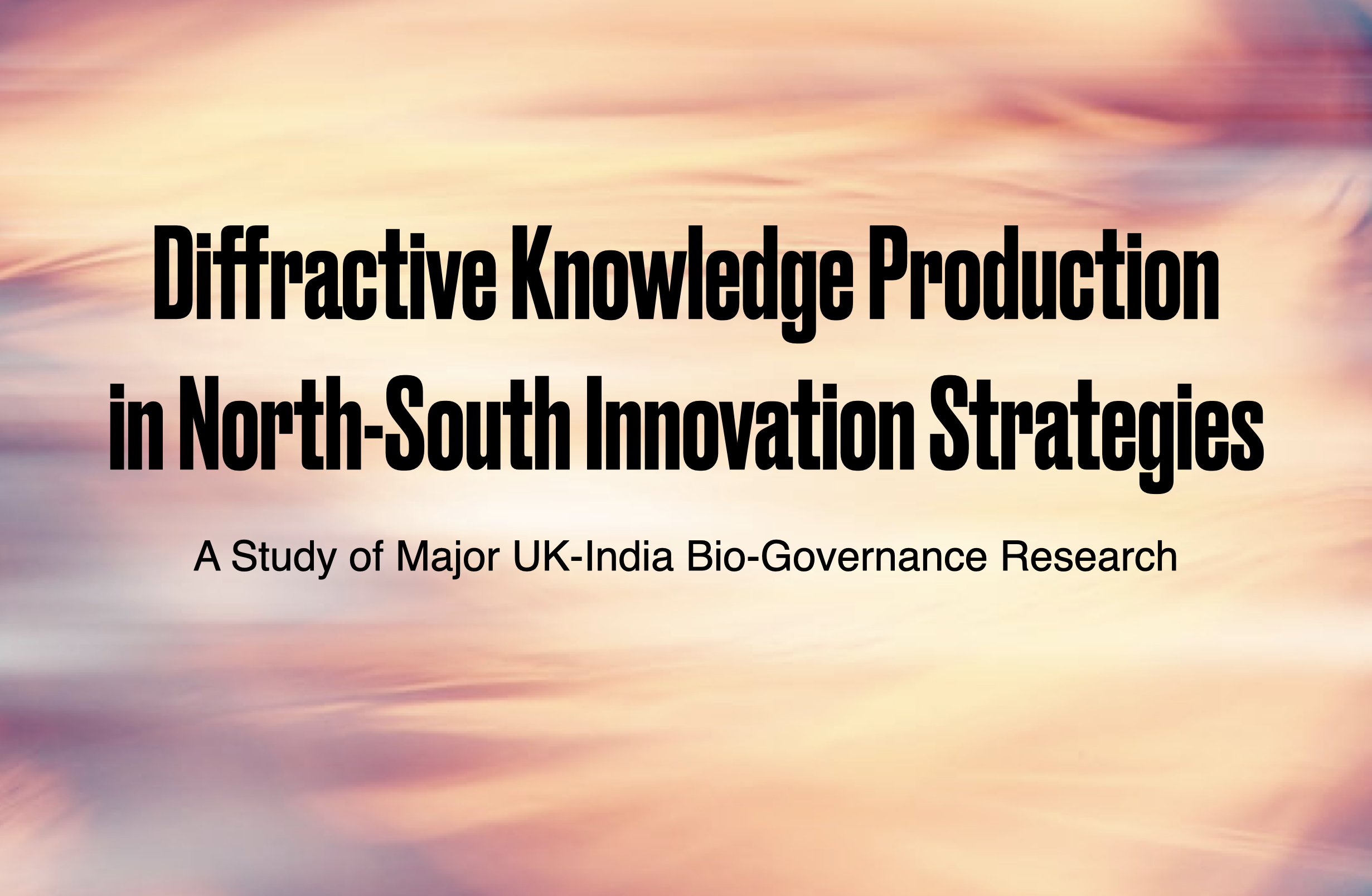Congratulations to Dr. Joy Y. Zhang (PI, Sociology) and Dr. Aparajita Mukhpopadhyay (Co-I, History) for being awarded of the competitive BA/Leverhulme Small Research Grants on the project, Diffractive Knowledge Production in North-South Innovation Strategies: A Study of Major UK-India BioGovernance Research. The project sits in the nexus of two major fields: science diplomacy and the decolonisation of global knowledge production.
Between 2001 and 2020, UK-India activity in biomedicine, particularly in clinical medicine has grown from around 20 per cent to 30 per cent of UK-India’s total collaborative output. The COVID pandemic and its associated geopolitical tensions have further highlighted that forging a ‘comprehensive knowledge partnership’ with India in particular, is critical to Britain’s competitiveness in a multi-polar world for science and innovation.
While one may see India and the UK as ‘natural partners’ in contemporary science, two gaps of knowledge remain outstanding. Firstly, with the rise of the Global South and shifting global power dynamics, there has been an increasing recognition of such back stage work as ‘Track II science diplomacy’, where non-state actors meaningfully shape international technical and regulatory standards for emerging technologies and facilitate transnational research collaborations. Yet while the role of scientists and entrepreneurs have been well explored, the role of social studies of science in Track II science diplomacy remain under studied. More importantly, apart from the ‘deliverables’ (e.g. publications or policy recommendations), there is also an imperative to understand how ‘latent deliverables’ (e.g. epistemic changes, such as the expansion or alteration of knowledge-ways in science governance) conditions the scope and effectiveness of international scientific alliances.
This is related to the second and more important gap of knowledge: to make visible and understand how the UK and India co-constitute each other’s epistemology of good science governance, one needs to get beyond a simple model of the dialogical or the reflexive to see it as a process of ‘diffraction’. To see international dialogues on science governance as diffractive knowledge production is to recognize: 1) the mutual, however asymmetrical impact, global encounters have on one another’s ways of thinking or thought patterns, and 2) the temporal connection and interaction of those thought pattern changes. If one sees different outlooks of science governance as waves of thoughts emanating from different epistemic standpoints, then the ripples (or scope of effects) created when these waves flow into each other, is a result of sequenced encounters, interferences, and reinforcement from subsequent waves.
For the next 12 months, Zhang and Mukhpopadhyay will collect oral history from key individuals involved in UK-India life science dialogues. Their diffractive lens will help to bring visibility to how encountering of differences diffracts both non-Western and Western epistemology on how life science innovations should and could be governed.
For more information, please contact: Dr. Joy Zhang (yz203@kent.ac.uk)

